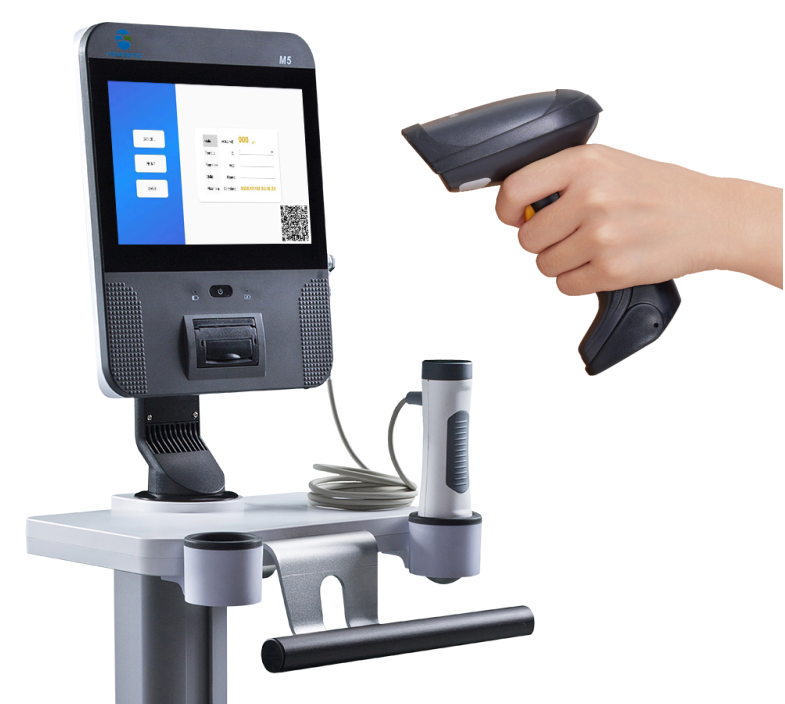Women's health is a crucial element of overall well-being, yet persistent challenges hinder comprehensive healthcare access in rural communities. Factors such as limited resources, geographical barriers, and a shortage of healthcare providers contribute to the disparity in healthcare services. In this extensive blog, we will delve deeper into the intricate issues surrounding women's health in rural areas. Additionally, we will explore comprehensive strategies that medical providers and medical distributors can employ to enhance access and care for women in these underserved communities.
Understanding the Challenges:
- Geographical Barriers: The geographical isolation of rural communities poses significant challenges to healthcare access. Women residing in such areas often face the daunting task of traveling long distances to reach the nearest healthcare facility, exacerbating difficulties during emergencies or routine check-ups.
- Limited Healthcare Facilities: The shortage of healthcare facilities in rural areas extends to obstetric and gynecological services. This shortage leads to delayed or inadequate care for women in need, highlighting the critical need for enhanced healthcare infrastructure.
- Healthcare Provider Shortage: The scarcity of healthcare professionals in rural communities compounds overall healthcare challenges. The limited access to specialized women's health services further intensifies the issue, underscoring the urgency for innovative solutions.
Strategies for Improving Access:
- Telemedicine Services: Introducing telemedicine services can significantly bridge the gap between healthcare providers and rural patients. Telehealth consultations offer a convenient and efficient means for women to access medical advice without the need for extensive travel. This not only improves accessibility but also ensures timely intervention and support.
- Mobile Clinics: Deploying mobile healthcare units equipped with essential women's health services can revolutionize healthcare delivery in rural communities. These clinics have the potential to provide preventive screenings, vaccinations, and basic healthcare services, reaching women who might otherwise be unable to access such resources.
- Community Health Education: Empowering communities with knowledge about women's health is paramount. Implementing educational programs on topics such as maternal care, family planning, and early detection of common health issues can empower women to take control of their well-being. It is an investment in preventive healthcare, leading to long-term benefits for the community.
Collaboration and Partnerships:
- Networking with Local Clinics: Medical distributors can play a crucial role by establishing strong collaborations with local clinics. This ensures a consistent supply of essential women's health products, overcoming logistical challenges, and guaranteeing a steady flow of medical supplies to the underserved areas.
- Supporting Nonprofit Organizations: Partnering with nonprofit organizations focused on women's health can amplify the impact of medical supply companies. Financial support and product donations contribute to the overall improvement of healthcare in rural areas. By aligning with organizations already active in the community, distributors can ensure that their efforts are targeted and effective.
- Training Local Healthcare Workers: Investing in the training and education of local healthcare workers is a sustainable solution to address the shortage of healthcare professionals. This not only enhances the capacity of rural clinics to provide comprehensive women's health services but also strengthens the local healthcare infrastructure.
Technology Integration:
- Supply Chain Management Systems: Implementing advanced supply chain management systems is pivotal for distributors. This helps streamline the distribution process, ensuring that healthcare products reach rural clinics efficiently and reducing the risk of shortages. Real-time tracking and data analytics can optimize the supply chain, enhancing overall efficiency.
- Digitized Health Records: Transitioning to electronic health records (EHRs) facilitates seamless communication between healthcare providers. This ensures that crucial medical information is readily available, even in remote areas, improving the continuity of care. Additionally, it enables better data management, contributing to evidence-based decision-making.
- Remote Monitoring Devices: Utilizing remote monitoring devices can revolutionize healthcare delivery in rural areas. Particularly beneficial for pregnant women or those with chronic conditions, these devices enable healthcare providers to monitor patients' health remotely, providing timely intervention and reducing the need for frequent travel.
Government Initiatives and Policy Advocacy:
- Policy Advocacy for Rural Healthcare: Advocating for policies that prioritize rural healthcare is crucial. Government initiatives, such as increased funding for rural clinics and incentive programs for healthcare professionals working in underserved areas, can significantly contribute to improving women's health access.
- Telehealth Policy Integration: Governments can play a pivotal role in integrating telehealth policies that support and incentivize the implementation of telemedicine services in rural areas. Clear guidelines and financial support can encourage healthcare providers to adopt these technologies.
- Community-Based Health Programs: Supporting and funding community-based health programs can empower local communities to take charge of their health. These programs can include women's health clinics, educational workshops, and initiatives that address the specific healthcare needs of the community.
Research and Data Collection:
- Research on Women's Health in Rural Areas: Encouraging and supporting research on women's health in rural areas is essential. Gathering data on prevalent health issues, healthcare-seeking behaviors, and the effectiveness of implemented strategies can inform future interventions and policies.
- Data-Driven Decision-Making: Utilizing data collected from rural communities helps healthcare providers and policymakers make informed decisions. It allows for targeted interventions, resource allocation, and the development of sustainable healthcare solutions.
Cultural Sensitivity and Community Involvement:
- Cultural Competence Training: Healthcare providers working in rural areas should undergo cultural competence training to better understand and address the unique needs of the community. This fosters trust and ensures that healthcare services are culturally sensitive.
- Community Engagement: Actively involving the community in healthcare decision-making is crucial. Understanding the local context, beliefs, and preferences ensures that healthcare interventions are well-received and aligned with the community's values.
Case Studies and Success Stories:
- Highlighting Successful Interventions: Showcasing case studies and success stories of healthcare interventions in similar rural settings can inspire confidence and provide a roadmap for future initiatives. Sharing tangible examples of positive outcomes fosters optimism and support for ongoing efforts.
- Learning from Challenges: Examining challenges faced by other initiatives helps refine strategies and avoid potential pitfalls. Learning from both successes and failures contributes to a more nuanced and effective approach to improving women's health in rural communities.
Addressing the healthcare disparities in women's health in rural communities demands a comprehensive and collaborative approach. By leveraging technology, fostering collaborations, advocating for supportive policies, and considering the cultural context, medical providers and distributors can play a pivotal role in improving access and care for women in underserved areas. It's not just a healthcare initiative; it's a commitment to building healthier, more resilient communities where every woman has the opportunity to lead a healthy and fulfilling life.
Explore Minerva Health Solutions' product portfolio to understand its contributions to women's health. Discover the range of solutions and services they offer to enhance women's well-being and address specific healthcare needs.
https://minervahealthinc.com/pages/urogynecology-obgyn




